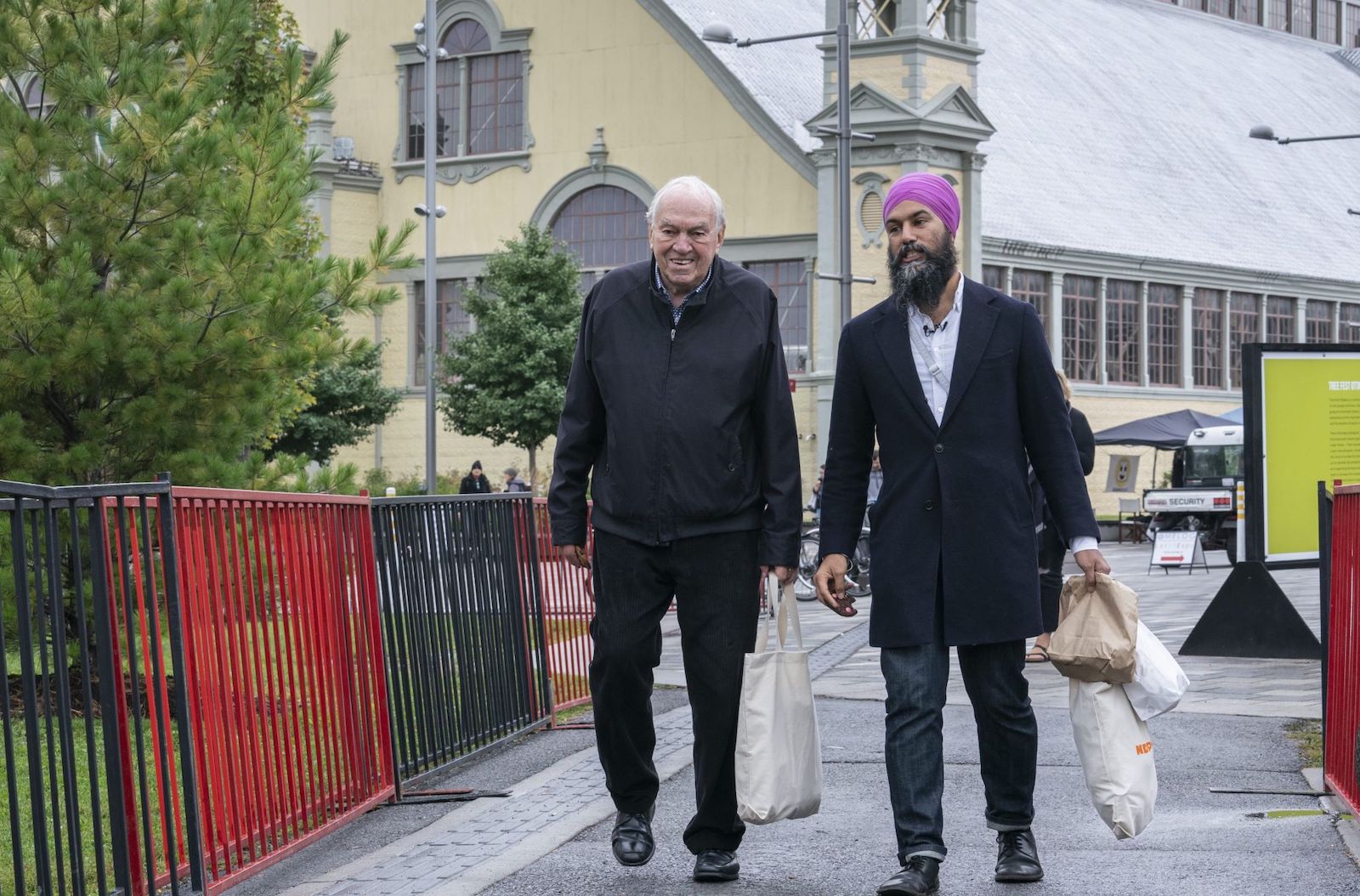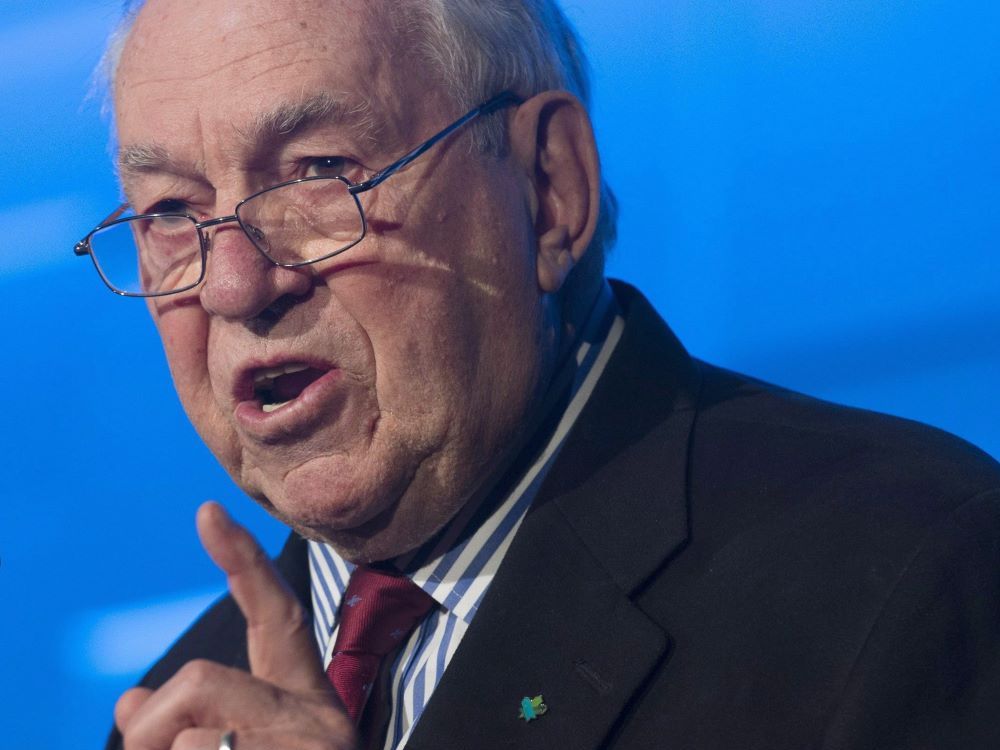- Seeking Social Democracy: Seven Decades in the Fight for Equality
- ECW Press (2023)
The world is collapsing around us. That’s how it feels. Everything is happening all at once, as if time has collapsed. And the outlook for the future is grim. The 1990s hailed the triumph of liberalism and the free market. Orthodox liberals gloated as we reached the “end of history,” as if democracy and capitalism and peace were to become the default conditions of humanity ahead of the new millennium. The exuberance was short-lived as triumphalists learned that history had other plans. By now, the "return of history" argument is tiresome and clichéd and overwrought, but it’s correct nonetheless.
While the end of the last century was celebrating the victory of centrist orthodoxy, it was also participating in the Great Retrenchment as the left gave way throughout the West to Third Way impulses and the centre and right gutted the state. Today, we are paying the price for it. We are facing several crises that threaten to persist, grow and intersect. Climate change. Affordability. Housing. War. Right-wing extremism. Toxic polarization. And plenty more to boot.
As we grapple with poverty, war in the Middle East and extreme weather, a new book reminds us that choices matter — and that Canada could today be a different, better country had it made more wise decisions in the past, just as this volume promises we can do better for the future should we renew a commitment to proper left politics.
Seeking Social Democracy: Seven Decades in the Fight for Equality chronicles the life and times of former New Democratic Party leader Ed Broadbent, who served as head of the party from 1975 to 1989. Part biography, part history and part social and political commentary, it reads as both an intellectual and political history that traces not only the decades-long struggle for social democracy in Canada, but the origins and outcomes of the country we have today, for better or worse.
The co-authored book brings together Broadbent and three interlocutors: scholar Frances Abele, writer Luke Savage and policy expert and adviser Jonathan Sas (all of whom will visit Vancouver for a public discussion on Nov. 1).
Each chapter of Seeking Social Democracy opens with an introduction essay by Broadbent on matters directly or generally related to social democracy in Canada or around the world — ideology, rights, globalization — and proceeds to a question-and-answer exchange between the four writers. The book’s approach is unusual and effective. Each contributor has a gift for taking difficult, sometimes abstract or arcane matters and bringing them down to earth, making them accessible and imparting matters from even decades ago a fresh, even pressing significance. The book is utterly fascinating, utterly reasonable and utterly required reading.
Throughout 10 chapters and 11 appendixes, we meet past and present influences on Broadbent — Marx, Mill, Keynes, Galbraith and his late wife, the Marxist scholar Ellen Meiksins Wood. Embedded within stories and arguments is an intellectual history of the left in miniature.
We learn about Broadbent’s variety of left social, political and economic theory — an ideological package that includes considered concern about the effects of concentrated power, and thus an aversion to unbridled capitalism and state socialism.
We learn that while Broadbent has “a skeptical orientation toward state socialism,” it was the Hungarian Revolution, crushed by the Soviets, that played a key role in pushing him away from the U.S.S.R. His understanding of power and balance also underscores his arguments in favour of labour unions and collective bargaining — institutions and rights that counterbalance the power of private wealth and the state, and thus mitigate the ever-present risk, and reality, of repression. Such a concern dovetails with his career-long commitment to decommodification of goods, including health care.
If there’s a top-line takeaway from the book, it’s that Ed Broadbent is the greatest prime minister Canada never had. Not that he’d say as much. But it’s true. In discussing his doctoral dissertation, The Political Theory of Cooperative Individualism, a play on Canadian political theorist C.B. Macpherson’s work, Broadbent recalls, “I argued that the goal of good government should be to foster the development of creative and co-operative human beings.” This is precisely true.
I would be keen to hear each leader in the House of Commons asked today what they believe the goal of good government to be. There is no doubt they’d fall short of Broadbent’s assessment. There’s more than a little doubt some of them would be able to produce anything approaching an adequate answer in the first place. And I’m certain none would utter the world socialism — which Broadbent isn’t afraid to do.

The risk of reading Seeking Social Democracy today is the insidious power of nostalgia, with its tendency to beckon us down the road towards a belief that the past was an unmitigated time of greatness. Our struggles today are great — and no struggle, yesterday or today, is greater than climate change — but Broadbent’s life and times took the country and world through Vietnam, crises in the Middle East, the oil crisis, stagflation, high unemployment, the Cold War, the rise of neoliberal austerity and decline of the social welfare state, and more. At home, the book recounts struggles over free trade and patriation, two critical eras in Canadian history in which Broadbent played an important role, advocating for left values of inclusion and fairness.
And yet, looking back, Broadbent’s career is marked by big swings throughout times of crisis. One feels such efforts are no longer in vogue, to our discredit. But Broadbent took big swings. He undertook a nomination in Oshawa in 1968 against stiff competition and squeaked by with a win. But for 15 votes that year — his margin of victory — we might not have this wonderful book to read.
He opened the first constituency office in Canada, using his own money. In 1969, he pushed a plan in which big firms would be automatically unionized. He championed a pro-worker industrial strategy that would have protected Canadian industry against the power of the United States, challenging this country’s branch-plant mentality. He turned down the opportunity to enter into a coalition government with Pierre Trudeau, worrying about having limited influence and being bound to the government’s decisions. He fought for patriation of the Constitution and maximal rights and struggled to make sure Quebec was a part of that process — and a signatory to the document. He took part in the Socialist International, later becoming its vice-president, to champion left politics around the world.
This book is a fitting record of — and tribute to — a great Canadian and a remarkable democratic socialist who has modelled a politics and leadership that left-wingers ought to consider as a model for contemporary struggles. Broadbent understands the power and need for class politics. As he writes, “It remains my firm belief that substantive equality still requires a fundamental change in the distribution of power and wealth in society along class lines.” In recent years, the institutional left has faced criticism for abandoning the working class — or at least downplaying the important of class consciousness and politics. And yet, class remains the beating heart of true left politics.
Beyond reading as an intellectual, political and personal history, this book reads as a call to class politics and a return to deep, substantive struggle premised on large, structural transformations to remake the country and the world. This is not an easy undertaking, and victory is far from assured. Moreover, it takes a shrewd balance underwritten by firm beliefs. That approach isn’t for everyone.
Indeed, Broadbent puts it best himself when he writes, “To champion a socialist vision in a capitalist world is, in a sense, a strangely paradoxical act of faith: unless you are prepared to lose majorities you will compromise your core beliefs, but to act on the basis of belief or program alone, without regard for the feelings and commitments of the majority in society, does both a profound disservice.”
Understanding this paradox means understanding that politics is not just about grand, long-term transformation. It’s also about solving problems today, small and medium problems alongside big ones. Moreover, politics also entails speaking to people where they’re at while also trying to lead them to where you believe they should end up.
It may be some time before we see another leader on the left like Ed Broadbent. In 2004, Jack Layton was able to persuade him to return to politics, where he served once again as a member of Parliament until 2006. But the torch is now duly passed. With this book, we can revisit Broadbent’s career and successes — and keep the torch burning.
The public is invited to a free event on Nov. 1 marking the publication of 'Seeking Social Democracy: Seven Decades in the Fight for Equality' at the Vancouver Central Library. In discussion with Mo Amir will be former federal NDP leader Ed Broadbent and co-writers Frances Abele, Jonathan Sas and Luke Savage. Get the details on the VPL website. ![]()
Read more: Books, Federal Politics

















Tyee Commenting Guidelines
Comments that violate guidelines risk being deleted, and violations may result in a temporary or permanent user ban. Maintain the spirit of good conversation to stay in the discussion and be patient with moderators. Comments are reviewed regularly but not in real time.
Do:
Do not: